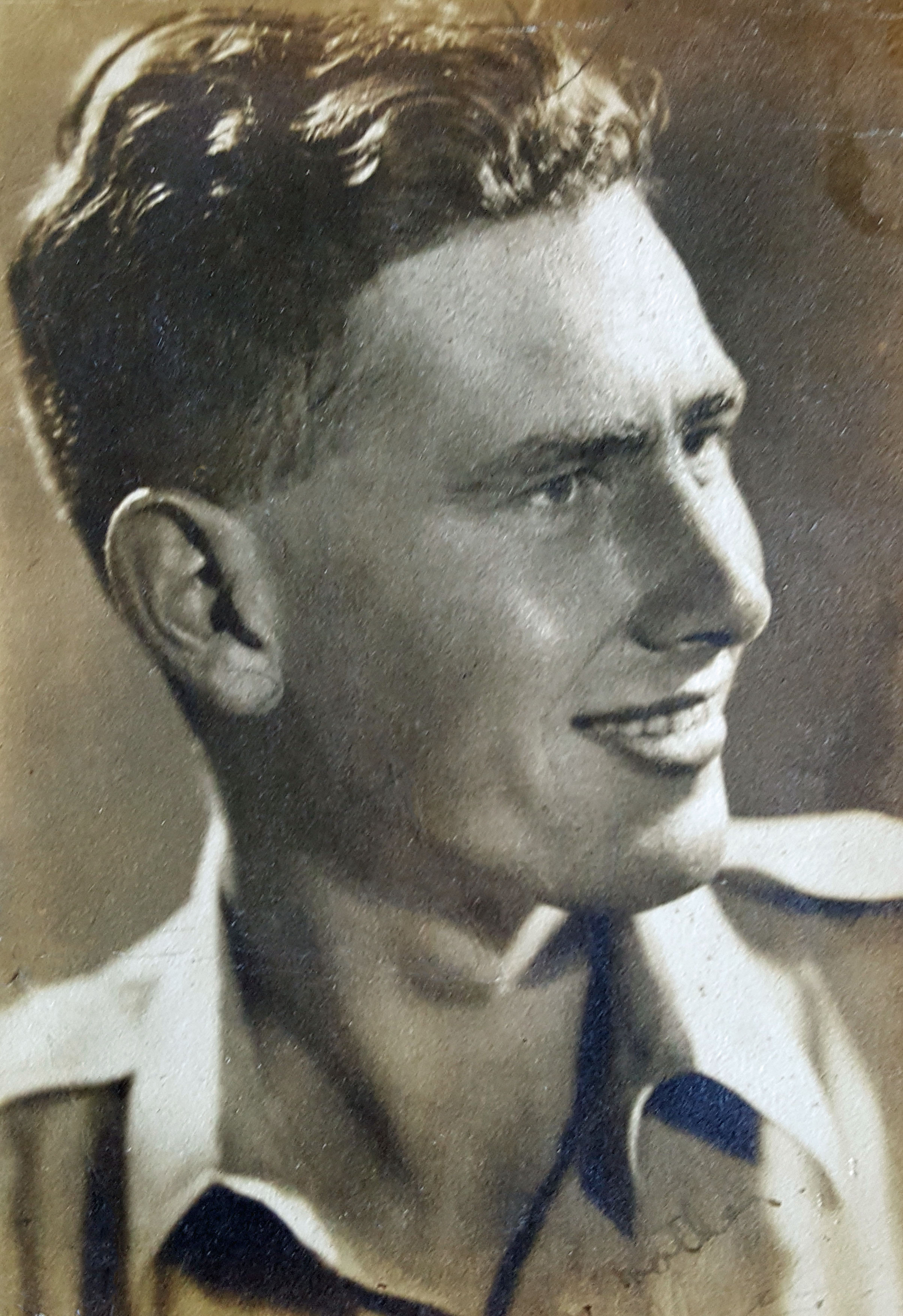Geoffrey Servante (1919-2019)
Over the last few years, several announcements have mourned the passing of the last British volunteers in the Spanish Civil War. First there was David Lomon, then Philip Tammer, and then recently Stan Hilton, all of whom were hailed as “the last of the last.” In fact, none of them were. As a November 2017 article by Carmelo García in the London Times revealed, British volunteer Geoffrey Servante was living in a nursing home in the Forest of Dean. He passed away on April 21, 2019.
Geoffrey’s Spanish adventure began in the summer of 1937. He was drinking in a Soho pub with his father when he overheard a man claiming that it was no longer possible to join the International Brigades, as the Spanish border had been closed. “I bet I can join,” declared Geoffrey, impulsively. When the man insisted that there was “no chance,” Geoffrey refused to believe him, vowing “I’ll bet you a hundred quid I can do it.”
Geoffrey was hardly a typical volunteer for the International Brigades. He had been educated by Jesuits and had never joined a political party nor even a Trade Union. “I wasn’t politically inclined at all,” he confessed. He had served briefly in the Royal Marines, however, and his earlier experience working on the Canadian–Pacific line helped him secure passage on a boat to Spain.
When they docked in Valencia, Geoffrey jumped ship and accosted a local, repeating the only Spanish phrase he knew: “¡Internacional Brigadas! ¡Internacional Brigadas!” Surprisingly, it was enough to land him a rail ticket to Albacete, the headquarters of the International Brigades. Interviewed there by a Political Commissar, Geoffrey admitted that he was only 18 years old, and was consequently refused admission into the British Battalion, which was then being slaughtered on the Brunete battlefield. Instead, he was posted to a much less hazardous unit, an artillery battery then in training in Almansa, some 40 miles east of Albacete.
The Anglo-American artillery unit, known as the John Brown Battery, was commanded by an Estonian-born American named Arthur Timpson, who had been trained in artillery in Moscow. Alongside Geoffrey were four other English volunteers, all under the watchful eye of Sergeant David King, a Communist Branch Secretary and former Royal Marine from Skipton in Yorkshire. Initially posted to the Extremadura front in southwest Spain, the battery was transferred to Toledo in December 1937, where it remained for the duration of the war.
With ammunition extremely scarce, the men rarely did much more than take the occasional pot shot at enemy lines. However, on one of the few occasions when they were called upon, the battery members had just taken the opportunity to polish off a barrel of local brandy. Geoffrey, who was by his own admission utterly “sozzled,” did his valiant best to aim the gun, but the shell missed its target by miles. For this, Geoffrey was punished with six extra guard duties; “it was a very lax discipline,” he laughed. Only later did he discover that he had inadvertently scored a direct hit on a fascist officer’s car, blowing him, his aide-de-camp, and the car to pieces.
When the majority of the International Brigades were withdrawn and repatriated at the end of 1938, the battery members remained in place, seemingly forgotten. Only in early 1939 were they withdrawn to Valencia, then on to Barcelona. From there, a narrow-gauge railway took them halfway to the frontier and they then had to walk the remaining 50 miles, harassed constantly by Nationalist aircraft. Safely across the French border, Geoffrey and his comrades enjoyed a huge breakfast, courtesy of the International Red Cross, before being repatriated via Paris and Dieppe.
Within a year, Geoffrey was back in uniform, having been called up into the British Army. He had a relatively good war, spending three years in Egypt with the Royal Army Ordnance Corps and the Royal Electrical and Mechanical Engineers. After demobilization, he worked for Marshalls, reconditioning military lorries, joining Vauxhall Motors in 1957, where he remained until he took early retirement twenty years later.
Only in 2009 did Geoffrey discover that the Spanish government had offered citizenship to surviving veterans of the International Brigades. “I heard on the radio that there were no more International Brigades left, and I said, Well, that’s nonsense. There’s still me.”
When his daughter, Honor, contacted the Spanish embassy, Geoffrey was invited to London to sign the declaration entitling him to his Spanish passport. He always retained an interest in Spanish affairs; he was a strong supporter of Catalan independence and voted in the October 2017 referendum. Geoffrey always remained extremely proud to have fought for Spanish democracy and had no regrets. Well, perhaps one. When he returned from Spain and triumphantly called into the pub to collect his winnings, Geoffrey was saddened—and a little disappointed—to discover that his fellow gambler had passed away. He never did get to see his 100 pounds.
Richard Baxell is an historian and Research Fellow of the Cañada Blanch Centre at the London School of Economics and Political Science. Between 2015 and 2018 he was Chair of the International Brigade Memorial Trust. A version of this article first appeared in the IBMT’s magazine ¡No Pasarán!














